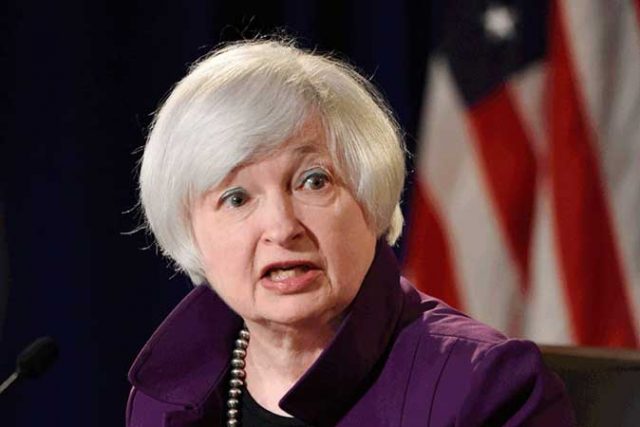By Luisa Maria Jacinta C. Jocson, Reporter
THE Bangko Sentral ng Pilipinas (BSP) is widely expected to keep its policy rate steady for a fourth straight meeting as inflation may accelerate in the coming months.
A BusinessWorld poll conducted last week showed that all 16 analysts surveyed expect the Monetary Board to maintain its target reverse repurchase (RRP) rate at a near 17-year high of 6.5% at its meeting on Monday (April 8).
The BSP has hiked borrowing costs by 450 basis points (bps) from May 2022 to October 2023 to tame inflation. It has kept policy rates steady since the 25-bp off-cycle rate hike in October.
“We expect the BSP to remain on hold at the next meeting as it assesses the inflation momentum. The pickup in inflation to 3.7% in March was largely driven by base effects, while the sequential momentum remained limited,” Makoto Tsuchiya, economist from Oxford Economics, said in an e-mail.
Headline inflation accelerated for a second straight month to 3.7% in March from 3.4% in February. This was within the BSP’s 3.4-4.2% forecast and marked the fourth straight month that inflation was within the 2-4% target range.
Pantheon Chief Emerging Asia Economist Miguel Chanco said in an e-mail that the Monetary Board is likely to keep rates steady “especially in the wake of the recent reacceleration in headline inflation on the back of food prices.”
Food inflation rose to 5.7% in March, its fastest pace in four months, mainly driven by the continued surge in rice prices.
“Though the March inflation rate of 3.7% year on year came in slightly lower than the consensus estimate of 3.8%, indicating that inflationary pressures may be moderating, the balance of risks remain on the upside notably with food and fuel prices threatening to go even higher,” Security Bank Corp. Chief Economist Robert Dan J. Roces said in an e-mail.
China Bank Research said that the central bank will keep rates steady as upside risks to inflation continue to persist.
In a statement following the release of March inflation data last Friday, the BSP said that inflation could temporarily accelerate above the 2-4% target in the next two quarters due to the impact of weather conditions on agricultural output and positive base effects.
“The significant increase in rice prices and the faster rise in food and drink prices due to adverse weather both locally and from import sources, plus geopolitical developments threatening fuel and transport prices, will be closely watched, as these factors could potentially push inflation higher in the coming months,” Mr. Roces said.
In March, rice inflation quickened to 24.4% from 23.7% a month ago, its fastest print since the 24.6% in February 2009.
According to the state weather bureau, the El Niño dry spell has shown signs of weakening but is still expected to persist until May.
Latest data from the Agriculture department showed that agricultural damage caused by the El Niño has risen to P2.63 billion. Rice was the most affected crop, accounting for P1.72 billion of the damage
“If inflationary pressures intensify, the BSP may be prompted to continue its hawkish stance to anchor inflation expectations and maintain price stability,” Mr. Roces said.
TARGET
Ruben Carlo O. Asuncion, chief economist at Union Bank of the Philippines, Inc., said that inflation may continue to breach the 2-4% target range in the coming months.
“We anticipate headline inflation to surge past 4% year on year starting in March with hefty contribution from rice CPI (consumer price index) and latent drought effects on the prices of the other crops, with the worst-case scenario of nearly 5%. Our monthly estimates indicated inflation peaking at 5% in May before the deceleration begins,” he said in an e-mail.
The BSP expects inflation to average 3.6% this year.
Inflation would only settle within target by the latter half of the year, Philippine National Bank economist Alvin Joseph A. Arogo said.
“Moving forward, we believe that inflation will reaccelerate anew before sustainably settling within the BSP’s 2-4% target starting the fourth quarter, due to the threats from El Niño, Middle East conflict escalation, and lagged impact of minimum wage hikes,” he said in an e-mail.
However, China Bank Research noted there are other indicators pointing towards easing price pressures.
“While we expect to see higher inflation readings until July, this uptrend is primarily driven by base effects. Moreover, there have been encouraging signs of easing inflationary pressures — prices of key food items such as fish, vegetables, eggs, and sugar have gone down in March,” it said.
Colegio de San Juan de Letran Graduate School Dean Emmanuel J. Lopez said that the inflation rate should settle within the target by yearend.
“(I) expect inflation rate will not breach the BSP target of 2-4% at the end of the year, possibly at 2.8%,” he said in an e-mail.
Barring any geopolitical risks and further damage from the drought, inflation could still remain within the target this year, Rizal Commercial Banking Corp. Chief Economist Michael L. Ricafort said.
“(It could be) briefly above the BSP inflation target at 4% levels from April-August with the easing of higher base effects, then back to within the BSP inflation target at 3% levels for most months from August-December,” he said in an e-mail.
AFTER THE FED HIKE
After the recent inflation uptick, analysts said they expect the BSP’s policy decisions to remain in lock step with the US Federal Reserve.
“Fully expecting the BSP to keep rates untouched with the Fed still on hold and domestic inflation close to the top end of the BSP’s inflation target. We maintain our view that any potential rate cut from the BSP will likely come after a Fed rate reduction,” Nicholas Antonio T. Mapa, senior economist at ING Bank N.V. Manila said in an e-mail.
The FOMC (Federal Open Market Committee) stood pat at its meeting in March, keeping its fed funds steady at the 5.25-5.5% range. From March 2022 to July 2023, the Fed raised rates by a total of 525 bps.
“The BSP cutting ahead of the Fed risks more peso weakness in the short term,” Patrick M. Ella, economist at Sun Life Investment Management and Trust Corp., added.
De La Salle University School of Economics Professor Jesus Felipe said that any rate cuts would likely be delivered in the second semester.
“The cut in interest rates will start during the second half of the year. The Monetary Board wants to make sure that inflation stays within its 2-4% target. Somehow, the factors that led to the increase in prices in 2022 (e.g., the Russia-Ukraine war) remain, and uncertainty has even increased,” he said in an e-mail.
Mr. Ella said that the BSP’s first rate cut could be delivered in June, a few days after the Fed’s own policy meeting that month.
BSP Governor Eli M. Remolona, Jr. last month said that the Monetary Board is closely watching the Fed’s next move, but it does not need to “wait for them” to begin cutting rates as its own monetary decisions are independent of the US central bank.
At the time, Mr. Remolona said that the BSP may begin policy easing in its next few meetings.
However, Moody’s Analytics economist Sarah Tan said that the BSP is unlikely to cut rates anytime soon.
“With inflation on a renewed reacceleration path and potentially breaching the upper bound of BSP’s target range in coming months, rate cuts are off the table. Meanwhile, the odds of resuming monetary tightening are low, given how far inflation has eased from its peak,” she said in an e-mail.












